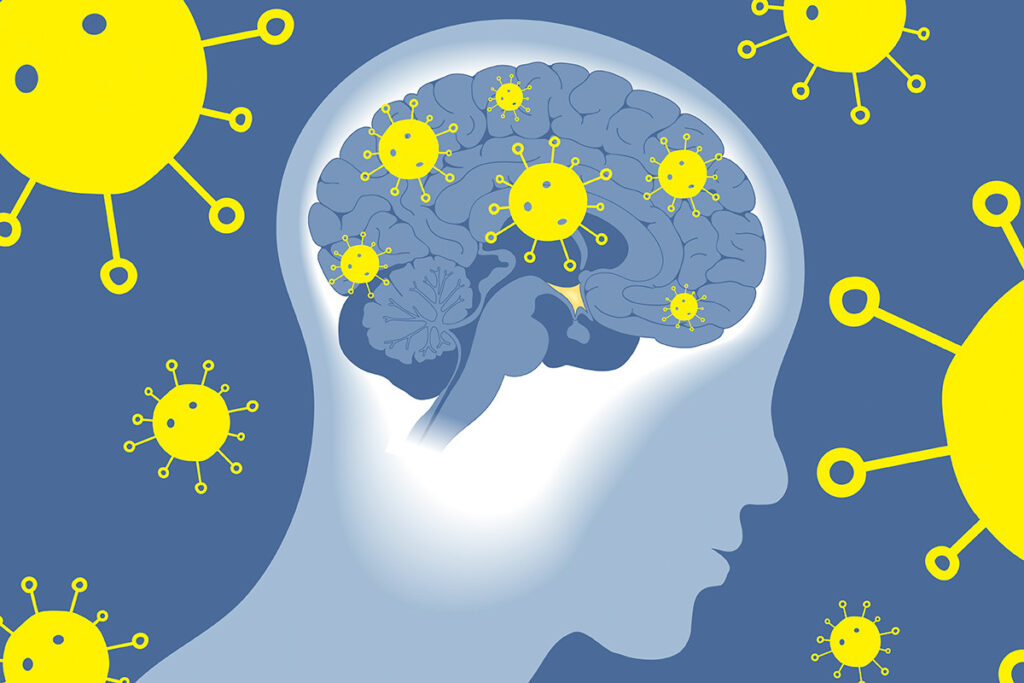If you’ve had COVID-19, it may still be messing with your brain. Those who have been infected with the virus are at increased risk of developing a range of neurological conditions in the first year after the infection, new research shows. Such complications include strokes, cognitive and memory problems, depression, anxiety and migraine headaches, according to a comprehensive analysis of federal health data by researchers at Washington University School of Medicine in St. Louis and the Veterans Affairs St. Louis Health Care system.
COVID-19 infections increase risk of long-term brain problems

View Content